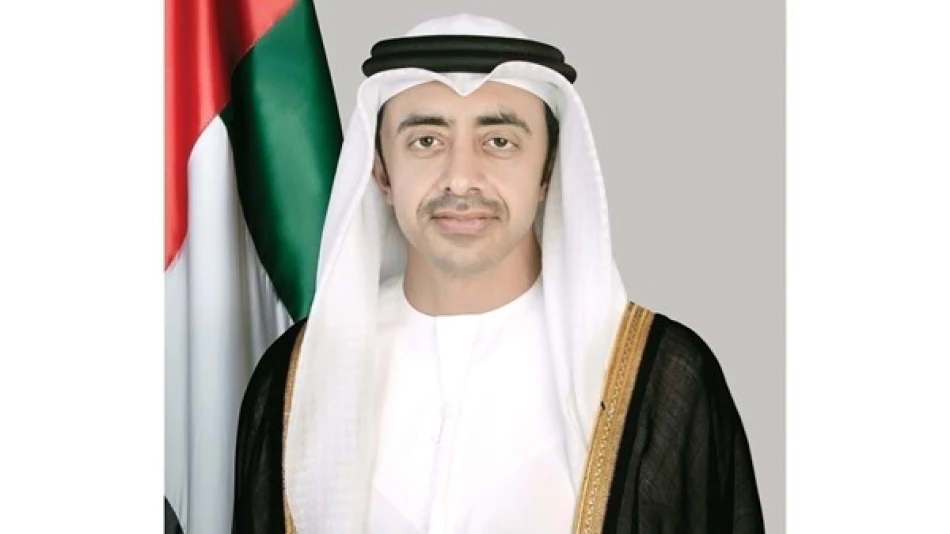
UAE Foreign Minister Welcomes Moldovan Deputy PM and Foreign Minister
UAE and Moldova Forge Visa-Free Travel Deal as Emirates Expands Eastern European Outreach
The United Arab Emirates has signed a mutual visa exemption agreement with Moldova, marking another strategic move in the Gulf nation's ambitious diplomatic expansion into Eastern Europe. The deal, inked during high-level talks in Abu Dhabi, reflects the UAE's broader strategy to diversify economic partnerships beyond traditional Western allies while positioning itself as a global business hub.
Strategic Timing Amid Regional Shifts
The agreement comes as the UAE accelerates its pivot toward emerging markets, particularly in Eastern Europe where geopolitical tensions have created new opportunities for Gulf capital. Sheikh Abdullah bin Zayed Al Nahyan, Deputy Prime Minister and Foreign Minister, met with his Moldovan counterpart Mihai Popsoi to formalize the visa waiver and discuss broader economic cooperation frameworks.
This diplomatic engagement signals the UAE's recognition of Moldova's strategic position as a gateway to European markets, despite the small nation's ongoing challenges with regional instability and economic transition.
Economic Implications Beyond Tourism
Investment Corridor Potential
While visa-free travel typically boosts tourism and business mobility, the UAE-Moldova deal appears designed to facilitate deeper economic integration. The discussions encompassed trade, investment, and development sectors that could serve both nations' growth objectives.
For Moldova, Europe's poorest country with a GDP of just $13.9 billion, UAE investment could provide crucial capital for infrastructure and energy projects. The timing is particularly significant as Moldova seeks to reduce its dependence on Russian energy and align more closely with Western economic systems.
UAE's Diversification Strategy
This agreement fits within the UAE's systematic approach to building economic bridges across multiple continents. Similar to its successful partnerships with Singapore, Switzerland, and various African nations, the Emirates is creating a network of visa-free destinations that enhance its appeal as a business and transit hub.
The move also reflects lessons learned from the UAE's experience during the COVID-19 pandemic, when diversified partnerships proved more resilient than over-reliance on traditional Western markets.
Market and Investor Perspective
From an investment standpoint, the UAE-Moldova partnership represents a calculated bet on Eastern Europe's long-term potential despite current regional uncertainties. UAE sovereign wealth funds and private investors have increasingly looked toward frontier markets where entry costs remain low and growth potential high.
The visa exemption removes a significant barrier for UAE businesses exploring opportunities in Moldova's agriculture, technology, and logistics sectors. Conversely, Moldovan entrepreneurs gain easier access to the UAE's sophisticated financial services and its role as a gateway to Asian markets.
Regional Context and Future Implications
This diplomatic initiative occurs against the backdrop of Moldova's complex geopolitical position, sandwiched between EU aspirations and Russian influence. The UAE's neutral stance in global conflicts makes it an attractive partner for nations seeking economic development without political complications.
The agreement also demonstrates how smaller nations can leverage visa diplomacy to attract investment and enhance their international profiles. For the UAE, each new visa-free partnership strengthens its position as a global connector, supporting its vision of becoming the world's most connected economy by 2030.
The UAE-Moldova deal, while modest in immediate scope, represents a broader trend of Gulf nations building strategic relationships across emerging markets, potentially reshaping traditional diplomatic and economic alliances in the process.
Most Viewed News

 Layla Al Mansoori
Layla Al Mansoori






